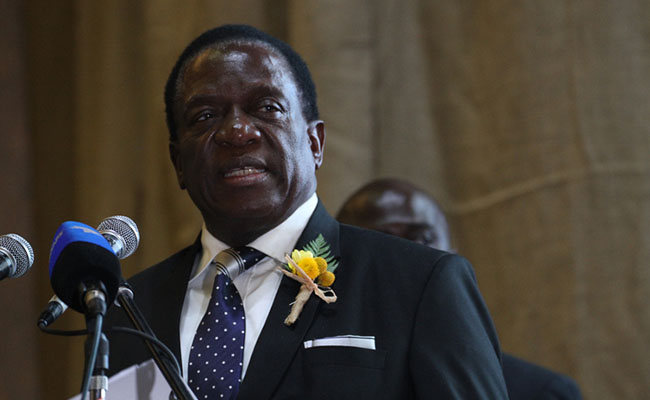Farirai Machivenyika Senior Reporter
Zimbabwe has in excess of 700 000 tonnes in grain and Government has put in measures that will ensure that no one will starve before the next harvest, Acting President Emmerson Mnangagwa has said. Acting President Mnangagwa said this in the National Assembly yesterday while responding to a question by MDC-T Bulawayo Representative Dr Thokozani Khupe on what Government was doing to ensure that the 1,1 million people identified by the Zimbabwe Vulnerability Assessment Committee Report produced in July to be food insecure would not starve before the next harvest. “As she correctly says, the report she is referring to is the report of July 2017,” he said.
“Currently, we already have excess food supply in the country which will enable Government to support the needs of the vulnerable between now and March. May I assure the nation that as a result of the bumper harvest we have an excess of 700 000 tonnes from what we normally need.” Zimbabwe recorded a bumper harvest this year as a result of a combination of good rains, Command Agriculture and the Presidential Well Wishers Input Scheme.
Zimbabwe expected to harvest over four million tonnes in food crops, while the country requires approximately 1,7 million tonnes of maize per year. The Meteorological Services Department has already predicted normal to above normal rainfall in the coming season. Government has stepped up preparations for the season with a number of private players having also come on board to support Command Agriculture.
The policy has been spread to support other crops that include soya bean, cotton and livestock. Meanwhile, Industry and Commerce Minister Dr Mike Bimha said Government was looking into the hike in the price of fertiliser, which has seen a 50kg bag going for $50. “It’s an issue being considered by Cabinet. We are looking at what caused the price increases together with the Ministry of Agriculture and I hope by next week, we would have information on the issue,” Dr Bimha said. Fertiliser manufacturers have bemoaned shortages of foreign currency as a hindrance in the procurement of raw materials required for the production of the commodity.

